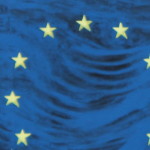There are currently no full-time, internationally-accredited MBA programs in Russia.
But business and international marketing professor Vladimir Shchegolov wants to change that.
Shchegolov, who teaches at St. Petersburg State Polytechnic University, is currently partnering with the Technical University of Berlin to design a master’s in business and management—which he hopes he can turn into an MBA program a few years down the line.
“I think there is certainly some stigma [against the MBA] that we could counter in two or three years,” Shchegolov says. “At Polytechnic University, we could develop an MBA in entrepreneurship. The young generation is interested in this topic.”
But Shchegolov’s goals would run counter to an ingrained anti-MBA slant in Russia.
Russia is home to approximately 50 part-time MBAs and Executive MBA programs. The list includes EMBA programs at Vlerick Business School and the Stockholm School of Economics, as well as one non-internationally accredited full-time MBA at the Moscow School of Management’s Skolkovo. But the country is short on the traditional full-time MBA programs that proliferate in the United States and European Union.
Others echo Shchegolov’s views. Alexander Yanchevsky, the dean of Vlerick Business School’s St. Petersburg campus, says his university stopped its full-time MBA several years ago due to lack of interest.
And many Russian businesspeople say that they never saw the point of pursuing a degree in business. Anton Fedosin, a Russian entrepreneur, says he never considered pursuing an MBA because he doesn’t think entrepreneurs in Russia need to study business.
“I always wanted to do something by myself, to have my own company. When you have a large company and you have to deal with different tasks like money management and financial questions, then you have to go to study in MBA programs,” Fedosin says.
“When you have a small company, I don’t think you have to study an MBA.”
And Aleksandr Kumpan, a Russian businessman who works for a company selling Toyotas, Lexuses and BMWs and who studied at the University of Economics and Finance in St. Petersburg, says he always considered pursuing an MBA at some point in the future, until he realized that MBAs will not help Russian businesspeople forge careers in their own country.
“[People think] the MBA is more western, while Russians have our own view, our own way of making business,” Kumpan says. “I don’t agree with that, but I’m telling about the majority of the people and what they do now. For the last one or two years and maybe for some period in the future, it’s a common trend: Russia is very separate and doesn’t need this western influence and western science and western way of doing business.”
Executive MBAs in Russia, for locals and westerners
However, despite the negative perception of business degrees in Russia, the country’s EMBA programs attract Russians as well as westerners who are already working in Russia or dream of opening a company there.
One such student is Bonnie van der Velde, who dreamed of moving to Russia ever since she saw a documentary about Lake Baikal when she was 10 or 11 years old. After she graduated from university in the Netherlands in 1997, she took a leap, moving to Russia and, in 2003, founded a tour-guide company with her husband.
In 2007, she enrolled in Vlerick’s EMBA program.
“I knew I could buy books and try to figure out everything on my own, or speed up my way of thinking,” van der Velde says. “Some issues that I faced running a business could become easier. And since I was based in Russia it was obvious to me I wanted to do my EMBA in Russia.”
Yanchevsky from Vlerick says his school’s EMBA program admits about 30 students per year, usually with between one and four international students who are working at Russian companies. And sometimes, Yanchevsky says, students even commute from Western Europe to attend EMBA programs at Vlerick.
“We had a chap who was flying from London because he found it more practical,” Yanchevsky says, adding that now that the ruble has dropped so dramatically, the Russian program is even cheaper than its western European counterpart (Vlerick also offers an EMBA program in Belgium). “Plus the flight, you get the same price for what you would be studying in Western Europe.”
But what’s it like to work in Russian business? Russian businesspeople and westerners like van der Velde alike describe an emerging market that’s by turns frustrating, exciting and baffling—but never boring.
“When you start your business there it feels like nothing is possible, but somehow there’s always a way out,” van der Velde says. “There are all these complicated laws that you need to be aware of. For any product you want to sell, you need to be aware of some strange law that you won’t understand.”
For example, she says when she started her tour guide company, she was shocked to discover that she was required to print a label on her maps bearing the warning 16+, since her maps might have contained information about night clubs forbidden for children under 16.
But Yanchevsky says westerners who start companies in Russia are following in the footsteps of hundreds of years of entrepreneurs before them, especially in St. Petersburg, a famously European city.
“Just look at the architecture in St. Petersburg. Until 1917 [the year of the Russian Revolution], most of the bakers in this city were German,” Yanchevsky says. He says today, St. Petersburg is overflowing with Italian-run Italian restaurants and Belgian bakeries.
He says that the one true barrier to western entrepreneurs in Russia is the language.
“You have to open accounts, you have to register in the tax office, where no one speaks English,” says Yanchevsky. “You need documentation to explain the civil code. You need to hire someone to assist you.”
Western businesspeople who are willing to brave the language barrier and unpredictable market conditions might find an environment ripe for entrepreneurial endeavors. Anton Fedosin, the entrepreneur, thinks that Russia’s lackluster entrepreneurial culture is actually beneficial to people who want to innovate, since there’s less competition.
Since there are fewer entrepreneurs, Fedsoin says, it “could be a bit easier to make something or to have your own company in Russia,” Fedosin says.
It’s that untapped entrepreneurial spirit in Russia that Shchegolov hopes to attract with his MBA program a few years down the line. Although Shchegolov expects that his MBA would attract global managers who would eventually take their careers abroad, he also hopes to attract clients who want to develop their own businesses—in Russia.
“I think entrepreneurship here is a very good potential,” Shchegolov says.










